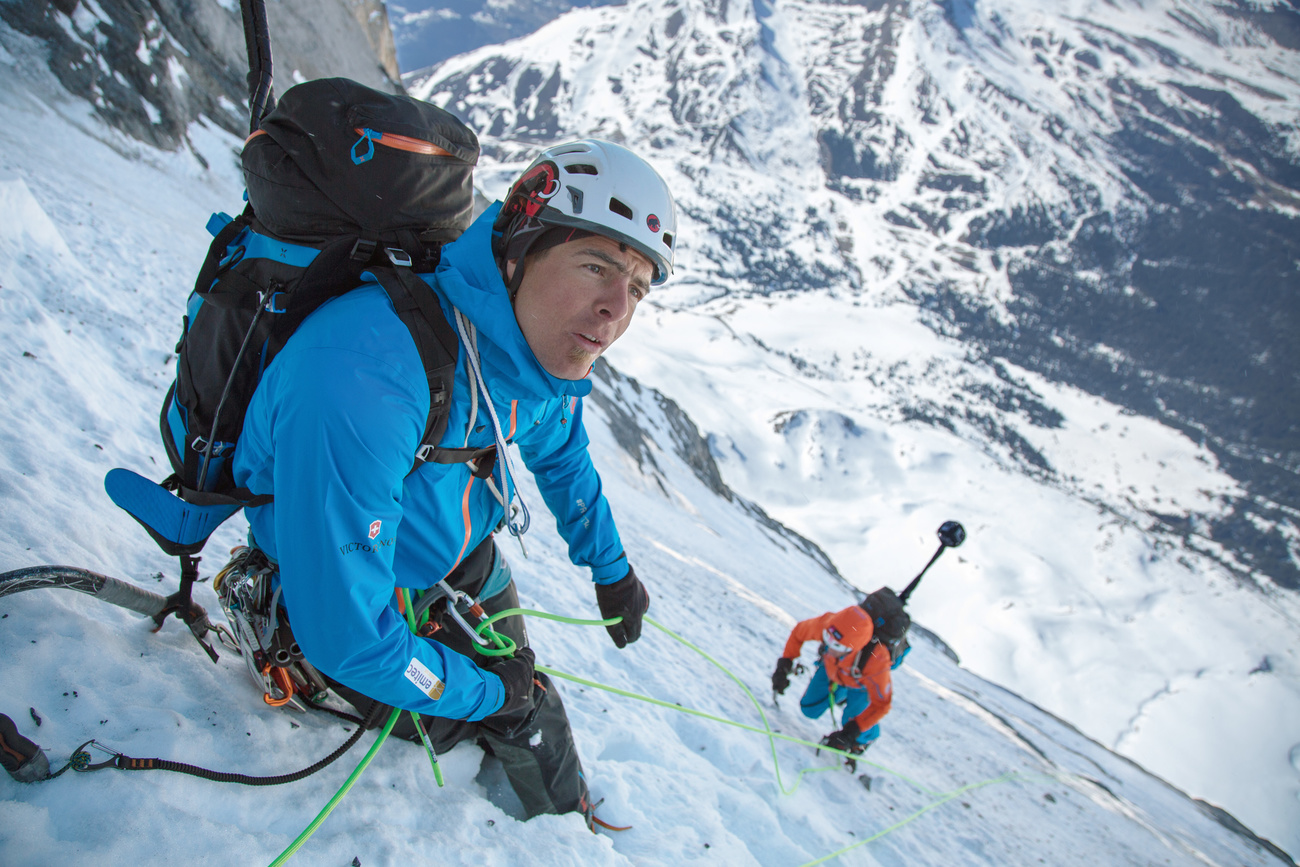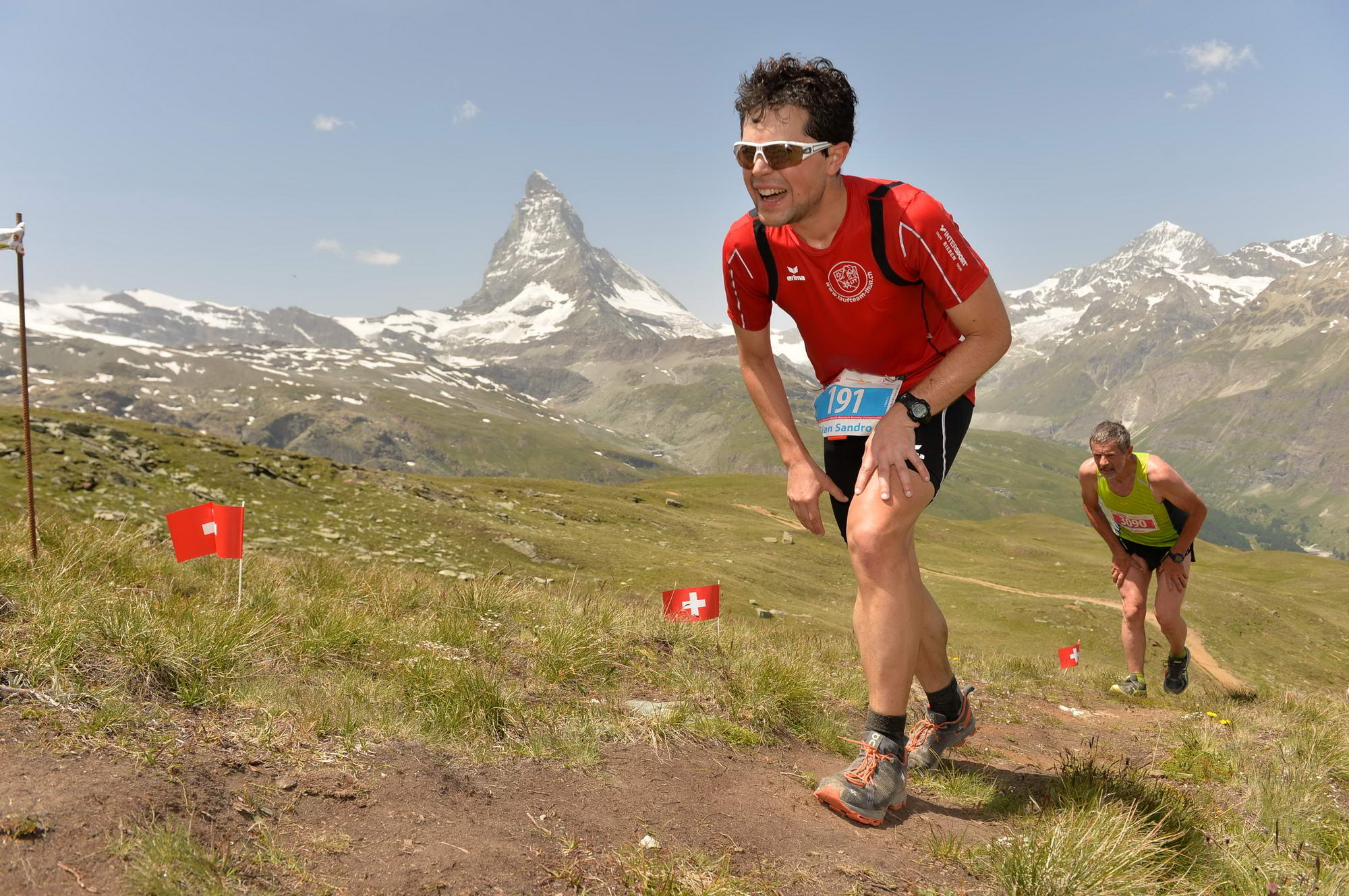Mammut Sports tries to stay true to Swiss roots under new British owners

After a difficult pandemic year for the retail sector, the Swiss outdoor clothing brand Mammut is setting its sights on expansion in major growth markets with help from new owners – British investment firm Telemos Capital.
Mammut Sports (Mammut) is one of the oldest clothing brands specialising in mountaineering and trekking still around. Founded in 1862 with headquarters in Seon in canton Aargau, Mammut employs 820 people in some 40 countries. In 2020 the company, which has been a business unit of Swiss holding company Conzzeta, posted a turnover of CHF218 million ($237 million).
This April the company announced that Conzzeta had struck a deal to sell Mammut to British investment firm Telemos Capital. In an interview, CEO Olivier Pabst talks about what this change means for the company’s Swiss identity and how it plans to expand its presence in growth markets such as China.
Olivier Pabst has been CEO of Mammut Sports since September 2016. He began his career at management consultants McKinsey in Zurich.
From 2002 to 2005 he was a managing partner of Boards & More Holding SA in Montreux. From 2006 to 2015 he was a member of the board and a managing director of several divisions of Willy Bogner KGaA in Munich.
Olivier Pabst has a doctorate in economics from the University of St Gallen. He was also part of the “Global Leadership Program” of the IMD Business School Lausanne.
SWI swissinfo.ch: What impact has the pandemic had on Mammut’s business?
Olivier Pabst: We didn’t see the pandemic as a disaster but as a challenge. And, this crisis has triggered some real momentum. We stepped up our client communications and leaned into the message “stay at home, the mountains will wait for you”. We also encouraged our customers to get to know the mountain regions in their local area. A social media campaign [to this effect] has been viewed more than 35 million times.
SWI: Did this campaign boost your online sales?
O.P.: Definitely! To a large extent this offset the losses from the forced closures of physical stores. But the growth of e-commerce follows a general trend, which began well before the pandemic. In 2016 our online sales were non-existent whereas today the channel – whether it’s our branded site or marketplaces – represents a significant portion of our turnover.

SWI: How does Mammut differentiate from competitors like Patagonia, North Face or Arc’teryx?
O.P.: Our products – like those of Arc’teryx – are firmly positioned on performance and mountaineering. In this sense, we don’t see Patagonia or North Face as direct competitors because their products target nature and sunset lovers.
A good example: we’re continually searching for ways to improve our backpacks for use in the mountains; these bags weigh only 2.5kg but for our customers it’s important to reduce the weight as much as possible, even if it’s only by 100g. The Patagonia and North Face backpacks, which weigh 5kg, are well-suited for these specific customers.
SWI: Mammut has a large range of products. Why don’t you concentrate on products that are best-sellers?
O.P.: It’s true that when you include clothing, shoes, climbing equipment and even a mountaineering school, the complexity of the business increases and therefore so do costs. We had two growth strategies: either offer more products to our existing customers or offer our existing products to more customers.
The group decided several years ago to fundamentally increase our product range, which led to the acquisitions of Raichle (shoes) and Ajungilak (sleeping bags). However, to contain costs, we still managed to reduce the product offer by 20% since 2016.
SWI: Does Mammut plan to increase its range of “city” products, or to enter the market for eyeglasses, watches or fragrances with products under licence?
O.P.: We find that more people want to purchase our products for their durability and advanced functionality, as well as for their contemporary design and Swiss quality. In response to this increased demand, we launched the “Urbaneering” collection, the encouraging results of which have led us to continue down this path.
As for the manufacture and commercialisation of eyeglasses, watches or fragrances under licence, I know that several fashion and luxury businesses find these categories very attractive. That said, it’s not something Mammut plans to do.
SWI: According to Conzzeta, Mammut doesn’t have sufficient access to markets outside Europe. Will Telemos Capital be able to help you address this challenge?
O.P.: During the search for a new owner, we had several contacts with private equity groups, family offices and strategic investors based in Europe, Asia and North America. None of them would have enabled us to rapidly bolster our presence in the three high potential growth markets, which are Europe, Asia and North America.
We’re very happy with Telemos Capital, which is both a private equity player and a family office with a long-term vision and solid Swiss connections. [Telemos Capital is managed by Philippe Jacobs who is also co-president of the board of Jacobs Holding AG].
Telemos Capital believes in the future of the sector and that of Mammut and appreciates the expertise of our teams. We’re going to start by consolidating our presence in Europe and Japan where we already have a strong position. Next, we will probably focus our efforts on the Chinese market.
SWI: Will the company’s strategy change under the new owners?
O.P.: The acquisition was only finalised on June 30, 2021, and our strategy will certainly be reviewed shortly with our new owner. It’s likely that new priorities will be defined. In my opinion, if our new owner had been a strategic investor, we could have expected a lot more changes.
SWI: Which activities will remain in-house?
O.P.: This is a key question because, in the clothing industry, a lot of companies outsource almost everything except the management of the brand. In our case, we’re strongly committed to maintaining responsibility for the engineering, quality, innovation and aesthetics. These “Swiss assets” are an essential part of our DNA. Although our products are manufactured overseas by third-party companies, the product development and control will always be done internally and in Switzerland.
SWI: Where do you see Mammut in ten years?
O.P.: We have three main priorities: continuous innovation, multi-channel sales (notably online channels) and, when the time comes, the Chinese market. In addition, we will continue our efforts in three main areas: sustainability, digitalisation of the entire value chain (including supply) and investment in our staff.

In compliance with the JTI standards
More: SWI swissinfo.ch certified by the Journalism Trust Initiative











Join the conversation!